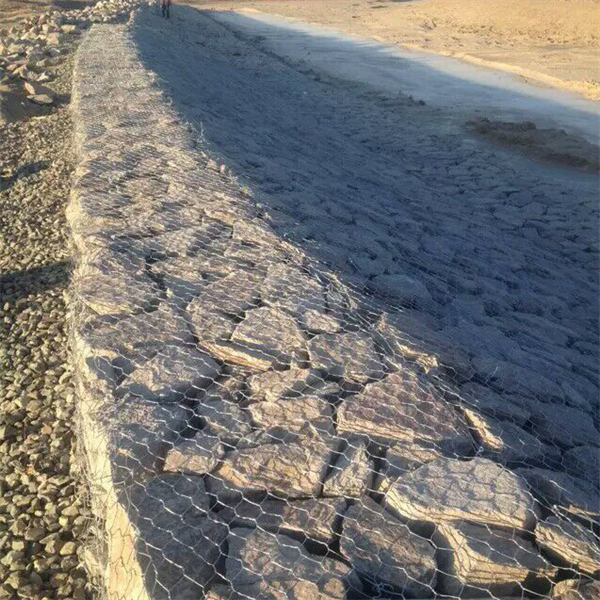Th9 . 28, 2024 22:06 Back to list
Optimal Stone Sizes for High-Quality Gabion Baskets in Landscaping Projects
High-Quality Gabion Basket Stone Sizes A Comprehensive Guide
Gabion baskets have emerged as an innovative solution for various landscaping and construction needs, combining functionality with aesthetic appeal. Made from durable wire mesh and filled with stones, these structures serve multiple purposes, including erosion control, retaining walls, and decorative landscaping. One of the crucial factors that determine the effectiveness and appearance of gabion baskets is the size of the stones used for filling. This article delves into high-quality gabion basket stone sizes, discussing their importance and best practices for selection.
Importance of Stone Size in Gabion Baskets
1. Structural Integrity The size of stones plays a pivotal role in ensuring the structural integrity of gabion baskets. Larger stones tend to provide better stability and strength, reducing the likelihood of deformation under pressure. Conversely, smaller stones may shift more easily, compromising the durability of the structure.
2. Aesthetic Appeal Gabion baskets are frequently used in landscaping projects, where visual appeal is as important as functionality. The choice of stone size affects the overall look of the structure. Larger stones create a more rugged, natural appearance, while smaller stones can provide a more uniform and refined look.
3. Drainage Properties Proper drainage is critical in preventing water accumulation within gabion structures. Stone size influences the spacing between stones, thereby affecting the flow of water through the basket. Ideally, a mix of stone sizes can enhance drainage and stability.
4. Ease of Installation The size of stones also affects the ease of installation. Larger stones require careful placement and more labor, while smaller stones can be quickly filled into the baskets. Therefore, the choice of stone size should consider both the construction timeline and labor costs.
Recommended Stone Sizes for Gabion Baskets
high quality gabion basket stone sizes

When selecting stone sizes for gabion baskets, it is essential to consider the specific application and intended use. Here are some recommendations based on common gabion applications
1. Erosion Control For applications focused on erosion control, a mix of stone sizes between 3 to 6 inches is typically recommended. This size range offers a balance of stability and drainage, ensuring that soil is held in place while allowing water to flow freely.
2. Retaining Walls If you’re constructing a retaining wall, larger stones, such as those sized between 4 to 10 inches, are preferred. These stones provide enhanced stability and support the weight of the earth behind the wall. Additionally, using larger stones minimizes the risk of shifting over time.
3. Landscaping Features When designing decorative features with gabion baskets, the stone size can vary significantly based on personal preference. Smaller stones, ranging from 1 to 3 inches, are ideal for more refined projects. For a more natural look, a combination of sizes—from 3 inches up to 8 inches—can create visual interest and texture.
4. Sound Barriers In applications where gabion baskets serve as sound barriers, it is advisable to use a mix of stone sizes, including larger pieces (up to 8 inches) alongside smaller debris. The combination helps absorb sound effectively while maintaining structural integrity.
Conclusion
In conclusion, the choice of stone sizes for high-quality gabion baskets is an essential factor that impacts both functionality and aesthetics. By carefully selecting the right sizes based on the intended application, builders and landscapers can create structures that not only serve their purpose effectively but also enhance the beauty of the surrounding environment. Whether it's for erosion control, retaining walls, decorative features, or sound barriers, understanding the importance of stone sizes will lead to successful and lasting gabion projects.
-
Why PVC Coated Gabion Mattress Is the Best Solution for Long-Term Erosion Control
NewsMay.23,2025
-
Gabion Wire Mesh: The Reinforced Solution for Modern Construction and Landscape Design
NewsMay.23,2025
-
Gabion Wall: The Flexible, Seismic-Resistant Solution for Modern Landscaping and Construction
NewsMay.23,2025
-
Gabion Wall Solutions: The Durable, Decorative, and Affordable Choice for Every Landscape
NewsMay.23,2025
-
Gabion Basket: The Durable and Flexible Alternative to Traditional Retaining Walls
NewsMay.23,2025
-
Gabion Basket: The Proven Solution for Slope Stability and Flood Control
NewsMay.23,2025
-
Versatility of Chain Link Fence Gabion
NewsMay.13,2025






